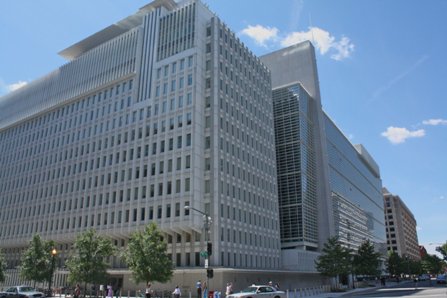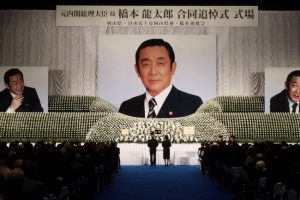Morinaga Takuro is an economic commentator who has published a succession of bestsellers, including "Zaim Shinrikyo," while fighting terminal cancer. In the 1990s, Japan's Ministry of Finance introduced a full-scale fiscal austerity policy with the goal of achieving a primary balance surplus, and continued to raise the consumption tax, creating the " Lost Thirty Years ." Japan's gross domestic product (GDP), which accounted for 18% of the world's total in 1995, is now below 6%, Japan's wages are the lowest among major countries, and its GDP per capita has been overtaken by South Korea. Morinaga warns that "politicians do not understand the horror of the austerity measures proposed by the Ministry of Finance," and that "Japan is becoming the world's first developing country in decline ." So why does Japan's Ministry of Finance continue to adopt fiscal policies that, one might say, are intentionally promoting Japan's economic decline? Unfortunately, Morinaga does not address this issue. This is because the Ministry of Finance is the "government office within the government office" with the power to draw up the national budget, and because it influences the Prime Minister's Office and "reigns" at the top of the hierarchical Japanese society, it has been used by the United States as a driving force to weaken Japan . Opposition lawmakers have even said, "As long as the Ministry of Finance exists, there is no point in changing the government."
It is no exaggeration to say that the headquarters of the Japanese Ministry of Finance is in Washington. There is a Japanese organization called the Finance Association in Washington, the capital of the United States. The official purpose of the association is "an association for people interested in Japanese finance and finance to exchange information and deepen friendships in their personal capacity." However, in reality, it is an organization mainly made up of Japanese Ministry of Finance bureaucrats who are seconded to the World Bank and the IMF (International Monetary Fund), which are core institutions of the United States' global domination . The association is run by volunteer finance bureaucrats who are directors of the World Bank and the IMF . A source revealed, "Looking at the recent list of the Finance Association, 42 of the 108 regular members are career bureaucrats seconded from the Ministry of Finance." Even in the Japanese Ministry of Foreign Affairs, which considers Washington to be special and where the rank of ambassador to the United States is higher than that of a vice minister, it is said that there are only about 20 career bureaucrats dispatched to the embassy in Washington. In the case of the Ministry of Finance, including non-career bureaucrats, it is thought that there are easily more than 100 people stationed in Washington. What is the reason for this unusual prominence?

The World Bank and IMF , international financial institutions established for US hegemony after World War II, are headquartered in Washington (photo) . The United States is the largest contributor to both the World Bank and the IMF, followed by Japan, which achieved rapid economic growth. In the 1980s, the US, the UK , Japan, France and Germany alone contributed well over half of the funds of the IMF and the World Bank. However, loans to developing countries and measures for financially bankrupt countries are basically carried out based on an agreement between the US, the World Bank and the IMF known as the " Washington Consensus, " which has led to the imposition of market fundamentalist and neoliberal policies, the promotion of unrestrained corporate activity, widening social disparities and financial crises. The "Washington Consensus" was coined by American economist John Williamson .The term was formulated in 1989 and is relatively new.
Japan's Ministry of Finance, which has the power to decide the amount of contributions Japan makes to the World Bank and the IMF, has played an auxiliary role within this consensus. Since September 1945, the area of indirect rule of Japan by the victorious United States has expanded to Washington. As can be seen from the example of Secretary of State Robert Rubin, who was sent from Wall Street (Goldman Sachs) to the US Treasury Department under the Clinton administration, the US Treasury Department, the IMF, and the World Bank are one with the huge US and UK financial capital (Wall Street and City of London) that seeks to freely control the world, and furthermore, the IMF and the World Bank are lackeys of the financial mafia of Wall Street and the US Treasury Department.
Japan's Ministry of Finance has surrendered to the Washington Consensus and is acting in their interest. In the 1980s, a plan to weaken the Japanese economy, which once again posed a threat to the United States, was drawn up in Washington. At the center of this plan were the American neoconservatives. From the 2000s to the 2010s under the Bush Jr. administration, staunch neoconservatives Paul Wolfowitz and Robert Zoellick served as World Bank presidents. Wolfowitz in particular is known for being the central figure in writing the 1992 Defense Planning Guidelines ( DPG ), which were created by the US Department of Defense immediately after the collapse of the Soviet Union in 1991. This is the so-called Wolfowitz Doctrine , which can be said to be a declaration of sole American hegemony . In a nutshell, the DPG advocates incorporating former enemies Germany and Japan into the US hegemonic expansion plan, containing them, and preventing the emergence of new US rivals in Europe, the Middle East, and East Asia.
In 2005, when Wolfowitz became president of the World Bank, the Koizumi administration was in the midst of completing the structural reforms in Japan. Heizo Takenaka, who was sent from Wall Street, was appointed Minister of Economy, Finance and Financial Services , and under the name of structural adjustment following the Japan-US Structural Initiative of the 1990s, he promoted the disposal of bad loans, privatization of the postal service, and deregulation , selling Japan to the huge financial capital of Wall Street and the City. The Wolfowitz Doctrine's goal regarding Japan was "to promote economic decline so that Japan does not become an economic threat to the United States again, while using Japan as much as possible as a complementary force to the United States militarily." If that is so, then the Ministry of Finance has been working with the United States to promote the decline and development of Japan, as Morinaga points out. The neoliberal austerity policy that the IMF imposed on South Korea and other countries during the Asian currency crisis in the late 1990s is identical to the fiscal and monetary policy that the Ministry of Finance has adopted in Japan for the past 30 years.
 Japan has been buying US government bonds, but has been forbidden from selling them and has been run over by the US . Former Prime Minister Ryutaro Hashimoto, who said in New York in 1997 that he felt an urge to sell US government bonds and buy gold, died mysteriously nine years later (photo). After the Lehman Shock , the US forced Japan to buy US government bonds , but then Finance Minister Shoichi Nakagawa refused at the G7 Finance Ministers and Central Bank Governors Meeting , saying, "Don't pass on our debt to Japan." Nakagawa resigned as Finance Minister after an intoxicated press conference following the G7 meeting in Rome in February 2009, and died under suspicious circumstances at his home after losing the general election. Shinohara Naoyuki, a finance official who was present at the Rome press conference, did nothing to help Nakagawa, who was slurring his words. It has been pointed out that this was orchestrated by then World Bank President Robert Zoellick. Zoellick is said to have subsequently recommended Shinohara to become the IMF's second-highest ranking deputy managing director. Shinohara, in the name of the IMF, is advising the Japanese government to raise the consumption tax.
Japan has been buying US government bonds, but has been forbidden from selling them and has been run over by the US . Former Prime Minister Ryutaro Hashimoto, who said in New York in 1997 that he felt an urge to sell US government bonds and buy gold, died mysteriously nine years later (photo). After the Lehman Shock , the US forced Japan to buy US government bonds , but then Finance Minister Shoichi Nakagawa refused at the G7 Finance Ministers and Central Bank Governors Meeting , saying, "Don't pass on our debt to Japan." Nakagawa resigned as Finance Minister after an intoxicated press conference following the G7 meeting in Rome in February 2009, and died under suspicious circumstances at his home after losing the general election. Shinohara Naoyuki, a finance official who was present at the Rome press conference, did nothing to help Nakagawa, who was slurring his words. It has been pointed out that this was orchestrated by then World Bank President Robert Zoellick. Zoellick is said to have subsequently recommended Shinohara to become the IMF's second-highest ranking deputy managing director. Shinohara, in the name of the IMF, is advising the Japanese government to raise the consumption tax.
The Japanese government, and especially the Ministry of Finance, is an organization that serves the ruling powers of the United States, not the powerless people of Japan.
